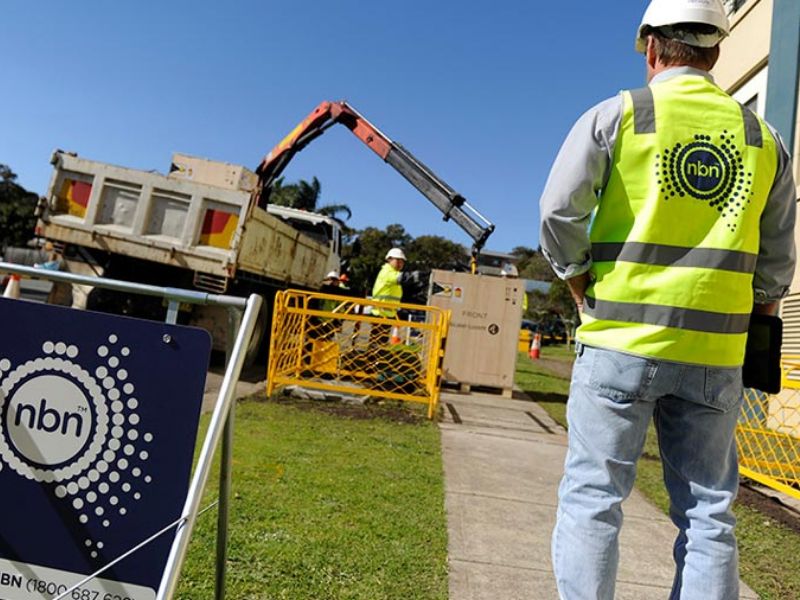Calls for the value of the National Broadband Network (NBN) to be written down won’t resolve the systemic problems with the telecommunications market, providing nothing more than a band-aid solution that ignores the underlying problem – the lack of an open, fair and competitive market.
The rationale for a write down is the need to reduce wholesale costs so that broadband service providers can survive in the increasingly competitive market and provide broadband to consumers at a reasonable cost.
JP Morgan analyst Eric Pan told The Australian newspaper recently that the value of the $52 billion infrastructure project would need to be written down by between 40 to 50 per cent, or about $20 billion, before the NBN would become a potential investment opportunity.

S&P Global Ratings provided a similar assessment last July and speculation of a write down is ongoing.
Last October, the opposition communications spokeswoman Michelle Rowland said “the Coalition has ruled out a write down, but we are keeping all of our options open.”
“There’s little wriggle room for either government, whoever wins the next election, there is no way NBN Co is going to meet its average revenue per user forecast [$51 by 2021-22] and there are alternative players popping up everywhere.”
The Government line is that there is no need foreseen at this time for a NBN write down and this has been echoed by senior management at NBN Co. Justification for the government’s position has been weak, and we are yet to see a plan put forward for the NBN beyond the next few months.
So, what are the key issues that need to be addressed before the next election by the major political parties?
Currently there is a disconnect between the provision of fixed broadband and mobile broadband services. The first and most important issue that should to be addressed is the need to broaden the regional and remote broadband levy to include all providers of broadband services and this means the provision of broadband services to residential, business and industry.
Currently the levy, known colloquially as the TPG levy, is restricted to companies that provide certain fixed access broadband connections to select customers.
Within a few years, NBN Co will need to order a third satellite and to make improvements to the provision of broadband in regional and remote areas.
There has been no mention of this in NBN Co’s corporate plan and NBN Co has had to be dragged, kicking and screaming to fix problems with the fixed wireless network.
Small business in many regional and remote areas are reliant on the existing NBN satellite services and efforts to gain access to improved services are being stymied by NBN Co’s business model. This issue is also hampered by the ACCC’s earlier unjustifiable decision to force NBN Co to build the NBN as 121 separate smaller unconnected networks that rely on private transit link providers for traffic to move to the service provider networks.
At some point, the issue of the nearly $1 billion per year paid by NBN Co to Telstra for access to the pits, ducts, traps and other infrastructure will need to be addressed.
In a farcical situation, NBN Co is now lumbered with remediating the infrastructure owned by Telstra for which they pay the annual leasing cost. In net present value terms, this is about a $13-$14 billion liability today.
The Federal and State governments continue to pour money into blackspot mobile programs at a time when the funds should be provided to NBN Co to build infrastructure that can be shared by the mobile network operators.
Small business and local communities that try to get access to this infrastructure for services other than mobile are being hit with exorbitant charges that are unacceptable on infrastructure that was partially publicly funded.
The challenge for NBN Co is to upgrade the obsolete FTTN and underperforming HFC networks to fibre. Again, NBN Co has not forecast where the $14-$16 billion will come from to upgrade the network to something that is fit for purpose. You only need to look at New Zealand to understand why they’re rolling out FTTP and starting to upgrade consumer connections to 10 Gbps.
Australia’s fixation with charging for data usage must end. In recent years, we’ve seen mobile network operators move away from this practice albeit whilst introducing restrictive fair use policies.
NBN Co’s business model is fatally flawed as it retains data usage as a key ingredient that forces service providers to under provision capacity available to consumers leading to unacceptably poor service quality during peak periods.
A side effect of this practice has been the over compression of media by the streaming companies including the ABC iView and SBS OnDemand. The quality of television and movies provided over the NBN is woeful.
An analysis of NBN Co’s financial position must not be a short term consideration of what it would take to permit broadband prices to be reduced to below $60 per month nor should it focus on the price at which the NBN becomes a potential investment opportunity.
Failure to fix the underlying systemic problems with the telecommunications market will lead us further down the rabbit-hole.
Mark Gregory is an Associate Professor in Network Engineering at RMIT University and is the Managing Editor of the Journal for Telecommunications and the Digital Economy
Do you know more? Contact James Riley via Email.

